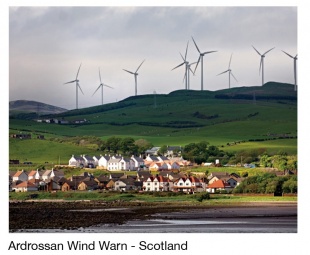Organization for Fundamental Education
- Key words
- TESOL, CALL, SLA, Applied Linguistics, Communication Strategies, LLS, Renewable Energy Scotland, Environmental responsibility.

Geography MA / Lecturer
Sam Thomson
Education
GCSE / A-Level, King’s School - Bruton
The University of Edinburgh, School of Geosciences, Geography MA
Professional Background
Osaka ‘Nova’ Multimedia Center Teacher, iTTTi Japan Teacher - Hokuriku Division, Lecturer - Fukui University of Technology (2009 - Present)
Consultations, Lectures, and Collaborative Research Themes
Technology in the classroom, effective online teaching, cultural exchange - Scotland, seminar on renewable energy use in Scotland and environmental sustainability.
Main research themes and their characteristics
「Technology in the classroom and CALL」
Technology is clearly an ever improving ever developing part of our life. Current students who have grown up with smartphones, wireless streaming, cloud saving, and other useful technology expect that these features, so common and convenient in their lives, will be equally utilized in the classroom setting. Moreover they enjoy the class more when they have access to these technologies. Going forward it seems unlikely that the days of rolling in an OHP or TV and demanding paper submissions will continue. Rather than hanging onto the past it is important to embrace these technologies and learn how to apply them effectively to the study of SLA methodologies. Through utilizing iPad connected to a projector as a virtual whiteboard, we can enable colorful, interesting, responses to student questions. Numerous apps allow us to streamline our lesson management so that we can focus wholly on instructing students. Many modern textbooks have online components and companions which help promote active learning. Modern e-learning software allows for students to practice pronunciation and listening skills efficiently with immediate feedback. Continuously adapting and improving lessons as new technology (both hardware and software) becomes available, is what I find particularly enjoyable in language teaching.
「Renewable energy use in Scotland and Japan」
As both a geographer focused on climate change and native of Scotland, where it is so ubiquitous, I have always had an interest in renewable energy. When I came to Japan, I was interested in how renewable energy use was expanding here and what parallels could be drawn with Scotland’s green energy push. As of this year Scotland is producing 90% of the country's electricity consumption through renewable sources. These include wind, tidal, solar, and hydroelectric sources. More than half of this electricity comes from onshore and offshore windfarms. Scottish people are very aware of this push for green energy and are proud of what the country is doing to promote a cleaner environment. With recent debate on nuclear power and other methods of electricity production in Japan, it too has started to look for clean energy solutions. As a result, the development of large offshore windfarms in Fukuoka and Akita has started. However unlike Scotland, these projects seem to be relatively unknown to the general public. While the Japanese technical expertise in constructing these technologies is without question, perhaps Japan could benefit from using Scotland as a case study in promoting support among its residents.
Major academic publications
On the Application of Communicative Approach in English Education at Fukui University of Technology [in Japanese]
Nyugaku Naoya , Koyama Masashi , Lee Bradford , Thomson Sam
Memoirs of Fukui University of Technology (47), 373-381, 2017
Comparison of Responses to Truancy in Japan, the United Kingdom, and the USA
AKAZAWA Takashi , PIROTTO Christopher , THOMSON Sam , KUMAGAI Takayuki
Memoirs of Fukui University of Technology (49), 355-361, 2019


